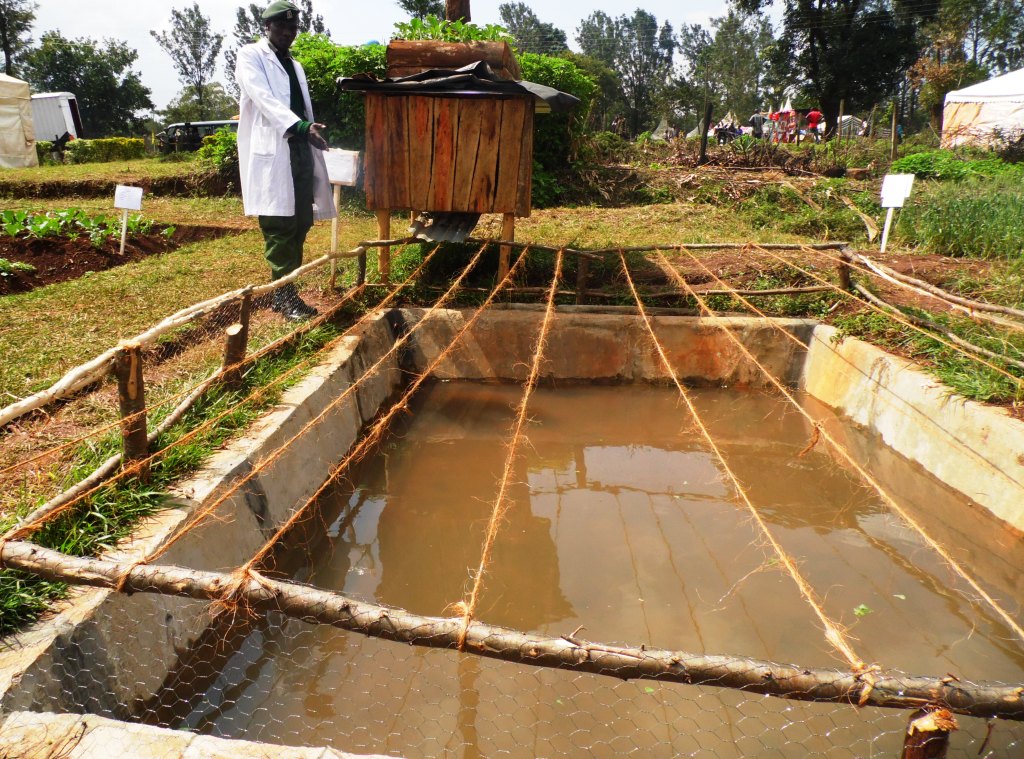Kakamega Prison Officer Fredrick Misoi at an integrated fishpond site. Human urine has been identified as the fastest generator of of food for fish. Photo by Laban Robert.
Ponds fed with human urine generate food for fish faster by four days, while saving farmers at least 24kg of commercial fertiliser required after every two weeks, a new research has revealed.
At least 24kg of commercial nitrogenous fertiliser is applied per acre every two weeks, according to the global agency, Food and Agriculture Organisation.
But a research by the University of Kalyani, India, says half a litre of human urine is required for every 4,500 litres of water to trigger multiplication of zooplankton in four days. Plankton are colonies of green microscopic organisms that are major sources of food for fish.
The research compared half a kilo of human urine with cowdung, vermicompost, chicken drippings and cow urine.
In the various setups, Moina micrura plankton grew four days earlier in the human urine than the others.
The research, which was published in the Ecological Engineering journal, said that the readiness to release the rich nitrogen and other ions in the human urine quickened the propagation process of the plankton.
A 50kg bag of CAN fertiliser costs between Sh2,500 and Sh3,000 in Kenya. A farmer using human urine in fish production can save this amount every month given that the application is twice in the same period.
READ ALSO:Two chickens and two rabbits multiply 50 fish weight in six months
READ ALSO: Cowdung stops snakes from feeding on fish
READ ALSO: Aquaponic farming turns fish waste into cheap organic fertiliser
Jared Mokaya, a Kenya Prisons Officer in charge of agriculture in Nakuru correction facility, said high populations of plankton also help in purifying the pond water.
“The green micro-organisms collectively produce the highest amount of oxygen in the world. In the process of food manufacturing, they absorb carbon dioxide, which is released by the fish during respiration,” Mokaya said in an earlier interview with www.farmbiz.glorycarefoundation.org.
The officer has established and helps farmers come up with integrated fish ponds where rabbits and chicken houses are constructed over fish ponds to release their waste into the water. The urine and droppings promotes growth of the plankton in the pond. Vegetables are grown over the chicken and rabbit house to be the food for these animals.

















Comments powered by CComment